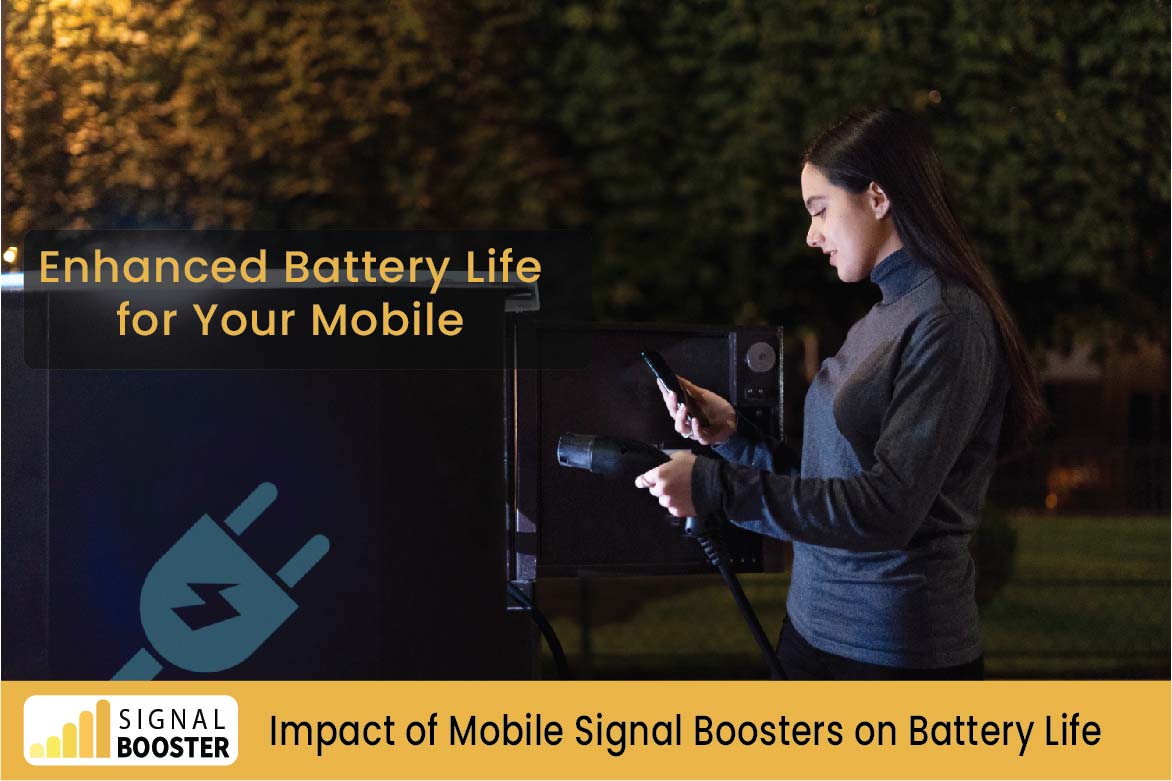
Mobile signal boosters have become popular solutions for improving cellular connectivity in areas with weak signals or coverage gaps. While they provide significant benefits in enhancing signal strength and reliability, one consideration for users is the potential impact on battery life. This article aims to delve into the impact of mobile signal boosters on battery life, examining the factors that influence mobile battery consumption and offering insights on optimizing efficiency and performance.
Mobile signal boosters consist of three main components: an external antenna, an amplifier, and an internal antenna. The external antenna captures existing signals from outside the building or vehicle, which are then amplified by the booster. The amplified signals are then broadcasted by the internal antenna within the designated area, providing improved cellular reception.
Several factors contribute to the impact of mobile signal boosters on battery life:
While signal boosters themselves do not directly control battery consumption, users can implement the following strategies to optimize battery efficiency:
It is essential to monitor battery performance while using a mobile signal booster. Pay attention to any significant changes in battery life, such as unusually rapid depletion or increased heat generation. If such issues arise, it may be helpful to troubleshoot the booster setup or seek professional assistance to ensure optimal performance.
The overall capacity and health of the device’s battery can also influence its performance when using a mobile signal booster. Over time, batteries can degrade and lose their capacity, resulting in shorter battery life. Regularly monitoring and maintaining the battery health through proper charging habits can help mitigate any potential impact on battery life.
The condition of the network itself can affect battery consumption. In areas with poor network coverage or heavy network congestion, devices may need to exert more power to establish and maintain a connection, leading to increased battery usage. A signal booster can help alleviate these network-related issues, potentially reducing the strain on the device’s battery.
The efficiency and quality of the signal booster itself can influence its impact on battery life. High-quality mobile signal boosters are designed to operate efficiently, minimizing any additional power consumption. Investing in a reliable and reputable signal booster can help ensure optimal performance and minimize any potential negative impact on battery life.
The impact of mobile signal boosters on battery life can vary depending on the type of mobile device used. Different operating systems, antenna designs, and power management algorithms can affect battery consumption differently. It is advisable to monitor battery performance across different device types and models to gauge the specific impact of a signal booster on each device.
While it is important to understand the potential impact of signal boosters on battery life, it is crucial to consider that the actual impact may vary from device to device and user to user. Factors such as individual usage patterns, signal strength variations, and network conditions can contribute to different battery performance. Users should assess the impact based on their specific circumstances and adapt accordingly.
The overall user experience and convenience of having improved signal strength should also be considered. While there may be a slight impact on battery life, the benefits of reliable connectivity, fewer dropped calls, and faster data speeds can greatly enhance user satisfaction and productivity. Users should weigh the trade-off between battery life and improved signal quality based on their specific needs and priorities.
Different mobile devices may have specific power management features or settings that can further optimize battery efficiency when using a signal booster. Users should explore device-specific recommendations or consult the manufacturer’s guidelines for maximizing battery life in conjunction with signal boosters.
While signal boosters may have a slight impact on active battery usage, their impact on standby time is generally minimal. When the device is in standby mode or not actively transmitting or receiving data, the power consumption associated with the signal booster is negligible.
Users can leverage battery-saving apps or tools available on mobile devices to manage power consumption effectively. These apps can provide insights into battery usage, suggest power-saving strategies, or even automate certain battery optimization tasks. Utilizing such tools can help mitigate any potential impact on battery life when using signal boosters.
While signal boosters may be one aspect affecting battery life, it is important to consider other factors that may influence battery performance. These can include screen brightness, app usage, background processes, and network-dependent applications. Users should adopt overall battery-saving practices to optimize battery life regardless of signal booster usage.
Users should weigh the benefits of improved signal strength against the potential impact on battery life. For individuals who heavily rely on consistent and reliable connectivity, the benefits of using a signal booster may outweigh the relatively minor impact on battery life. Users can assess their specific needs and priorities to determine if the trade-off is acceptable.
Each user’s mobile device usage patterns, network conditions, and signal booster setup may differ. It is essential for users to customize and optimize their signal booster setup based on their specific requirements and preferences. Experimenting with different configurations, device placements, and power management settings can help find the optimal balance between signal strength and battery life.
Mobile signal boosters play a crucial role in enhancing cellular connectivity and improving communication experiences. While there can be some impact on battery life, it is important to note that the benefits of consistent and reliable connectivity often outweigh this consideration. By understanding the factors influencing battery consumption, optimizing device placement, adjusting power management settings, and practicing battery conservation habits, users can strike a balance between improved signal strength and efficient battery usage. Ultimately, mobile signal boosters offer a valuable solution for individuals and businesses seeking better cellular reception, empowering them to stay connected without compromising battery life.
Buy your mobile signal booster today and enjoy uninterrupted communication and faster data speed. If you have any questions regarding any of our products please contact us.